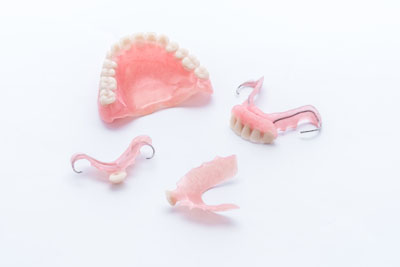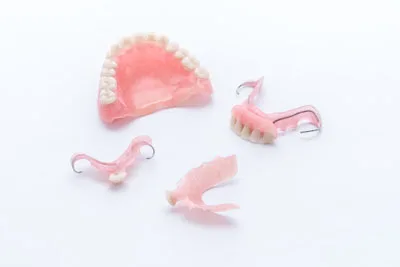If you’re one of the many individuals who have dentures, you know that they can sometimes bring along a set of challenges. From discomfort to slipping and difficulty eating, common denture problems can be a real pain. But fear not! In this article, we’ll explore these issues and provide you with affordable solutions to make your denture-wearing experience much smoother.
When it comes to dentures, it’s not uncommon to face a few obstacles along the way. From ill-fitting dentures causing sore spots to the dreaded fear of them falling out at the most inconvenient moments, these problems can put a damper on your day. But don’t worry, we’ve got you covered! In this article, we’ll delve into some common denture problems and arm you with affordable solutions that will leave you smiling confidently. So, let’s dive in and discover how to tackle these pesky denture challenges head-on!

Common Denture Problems and Affordable Solutions
Dentures are a common dental appliance used to replace missing teeth and restore oral function. While dentures are a convenient and cost-effective solution for many people, they can also come with their fair share of problems. In this article, we will explore the most common denture problems and provide affordable solutions to help you overcome them.
Ill-Fitting Dentures
One of the most common problems denture wearers face is ill-fitting dentures. Ill-fitting dentures can cause discomfort, difficulty speaking, and even mouth sores. This issue often arises due to changes in the shape of the jawbone over time, causing the dentures to become loose or unstable.
To address ill-fitting dentures, it is important to visit your dentist regularly for adjustments and relining. Your dentist can make necessary modifications to ensure a proper fit and comfortable wear. In some cases, denture adhesives can be used to improve stability and reduce movement. If the dentures are severely ill-fitting and causing persistent discomfort, it may be time to consider getting a new set of dentures that are custom-made to fit your mouth accurately.
Benefits of Custom-Made Dentures
Custom-made dentures offer several benefits compared to generic dentures. Firstly, they are designed specifically for your mouth, ensuring a precise fit and optimal comfort. Custom-made dentures also provide better functionality, allowing for improved chewing and speaking ability. Additionally, they can enhance your facial appearance by providing better support to the muscles and tissues of the face.
When getting custom-made dentures, it is essential to choose a skilled and experienced dentist who can create dentures that meet your unique needs and preferences. With custom-made dentures, you can enjoy a comfortable and natural-looking smile.
Difficulty Eating Certain Foods
Another common problem faced by denture wearers is difficulty eating certain foods. Dentures can make it challenging to chew tough or sticky foods, which can limit your diet and affect your overall nutrition. However, there are affordable solutions to help you overcome this problem and enjoy a varied and balanced diet.
One solution is to cut your food into smaller, bite-sized pieces to make it easier to chew. Chewing slowly and taking smaller bites can also help prevent discomfort and improve the digestion process. Additionally, using denture adhesives or creams can provide extra stability and make it easier to eat a wider range of foods.
Tips for Eating with Dentures
Here are some helpful tips to make eating with dentures more comfortable and enjoyable:
1. Start with softer foods: Gradually introduce tougher foods into your diet as you become more accustomed to wearing dentures.
2. Avoid sticky or hard foods: Sticky candies, nuts, and hard fruits or vegetables can be challenging to chew with dentures. Opt for softer alternatives instead.
3. Practice good oral hygiene: Properly cleaning your dentures and maintaining good oral hygiene can help prevent food particles from getting trapped and causing discomfort.
4. Take your time: Chew slowly and thoroughly to ensure proper digestion and prevent any potential discomfort.
Speech Difficulties
Speech difficulties are another common problem experienced by denture wearers. Dentures can affect speech by altering the movement of the tongue and lips, leading to a lisp or mumbling. However, with time and practice, you can overcome these challenges and improve your speech.
One way to improve speech with dentures is by practicing reading aloud or speaking in front of a mirror. This allows you to observe and adjust your tongue and lip movements to achieve clearer speech. Additionally, speaking slowly and enunciating words can help improve clarity. If you continue to experience speech difficulties, consult with your dentist, as they may be able to make adjustments to your dentures to improve speech function.
Tips for Improving Speech with Dentures
Here are some tips to help you improve your speech with dentures:
1. Practice reading aloud: Regularly reading aloud can help train your tongue and lips to adapt to the dentures and improve your speech over time.
2. Speak slowly and enunciate: Taking your time and clearly pronouncing each word can significantly enhance your speech clarity.
3. Use denture adhesives: Denture adhesives can improve the stability of your dentures, reducing movement and aiding in better speech production.
Gum and Mouth Irritation
Gum and mouth irritation are common problems that can occur with denture wear. Continuous friction and pressure from the dentures can cause sore spots, redness, and irritation. It is essential to address these issues promptly to avoid further discomfort and potential complications.
To alleviate gum and mouth irritation, it is crucial to maintain good oral hygiene. Clean your dentures regularly and remove them at night to give your gums a chance to rest. Rinse your mouth with warm saltwater to soothe any sore spots and promote healing. If the irritation persists, consult with your dentist for further evaluation and potential adjustments to your dentures.
Tips for Preventing Gum and Mouth Irritation
Here are some tips to help prevent gum and mouth irritation:
1. Follow proper denture care: Clean your dentures daily and remove them overnight to allow your gums to rest and rejuvenate.
2. Rinse with warm saltwater: A saltwater rinse can help reduce inflammation and promote healing of any irritated areas.
3. Attend regular dental check-ups: Regular dental check-ups allow your dentist to monitor the condition of your dentures and make any necessary adjustments to ensure optimal comfort.
4. Avoid using DIY denture repair kits: Attempting to repair your dentures using DIY kits can lead to further damage and irritation. Always seek professional help for any denture-related issues.
By addressing these common denture problems and implementing the affordable solutions provided, you can enjoy a comfortable and functional smile. Regular dental visits and proper maintenance of your dentures are crucial for long-term success. Remember, with a little care and patience, you can overcome any challenges associated with wearing dentures and confidently embrace your new smile.
Key Takeaways: Common Denture Problems and Affordable Solutions
- Dentures may become loose over time, causing discomfort and difficulty in eating.
- Sore spots and irritation can occur due to improper fit or poor oral hygiene.
- Chipped or broken dentures can be fixed by a dentist using affordable repair options.
- Denture adhesives can help improve stability and reduce slippage.
- Regular dental check-ups and professional cleanings can prevent common denture problems.
Final Summary: Overcoming Denture Problems with Affordable Solutions
Dealing with denture problems can be frustrating and uncomfortable, but there are affordable solutions available to help you overcome these challenges. Whether you’re struggling with issues like poor fit, difficulty speaking or eating, or discomfort, there are steps you can take to improve your denture experience without breaking the bank. By addressing these problems head-on and exploring different options, you can find relief and regain your confidence in no time.
One common denture problem is poor fit, which can lead to discomfort and difficulty speaking or eating. If your dentures feel loose or constantly slip out of place, it’s important to consult with your dentist. They may recommend adjustments or relining to improve the fit. Additionally, using denture adhesive can provide extra stability and help keep your dentures in place throughout the day. Remember, a well-fitting denture is essential for optimal comfort and functionality.
Another issue many denture wearers face is irritation or soreness caused by friction between the dentures and the gums. This can make wearing dentures a painful experience. To alleviate this problem, try using a denture-friendly mouthwash or rinse to soothe the gums and prevent irritation. You can also consider using denture cushions or pads to provide extra cushioning and reduce discomfort. These affordable solutions can make a significant difference in your overall denture-wearing experience.
In conclusion, while denture problems can be troublesome, there are affordable solutions available to help you overcome them. By addressing issues such as poor fit and discomfort, you can improve the functionality and comfort of your dentures. Remember to consult with your dentist for professional guidance and explore different options that suit your needs. With these affordable solutions, you can regain your confidence and enjoy a more comfortable denture experience.









